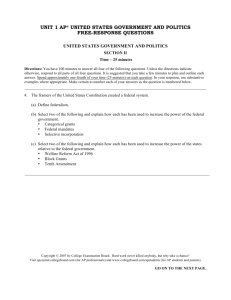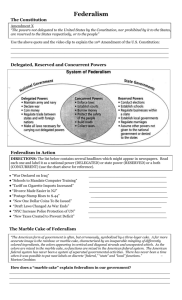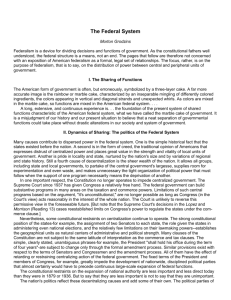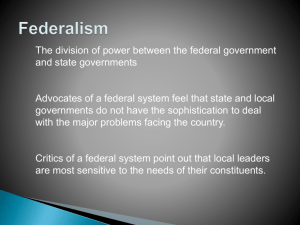Federalism Overview
advertisement
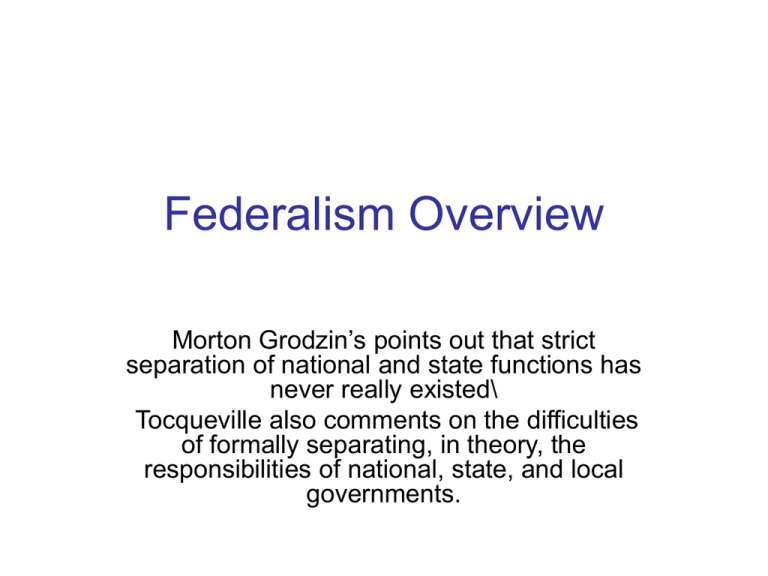
Federalism Overview Morton Grodzin’s points out that strict separation of national and state functions has never really existed\ Tocqueville also comments on the difficulties of formally separating, in theory, the responsibilities of national, state, and local governments. Centralization versus Decentralization • The thrust of the New Deal was toward centralization through the use of federal grant-in-aid programs, a philosophy that dominated the government until the late 1960s • The emergence of the �New Federalism� of the Nixon administration supported decentralization of power from the national to the state governments. Revenue Sharing • Revenue sharing was inaugurated by President Nixon to transfer national funds to the states, without stipulation of how the money was to be spent. • The revenue-sharing procedure was in direct contrast to the grant-in-aid programs, which allowed for state receipt of federal money upon the condition of state adherence to national standards Reagan's New Federalism • President Reagan's New Federalism proposed the merging of grant-in-aid programs into block grants to the states, leading eventually to a reduced federal role in financing state and local governments Grodzins-Federalism as a Marble Cake • I. Sharing of Functions • The American form of government is often, but erroneously, symbolized by a threelayer cake. A far more accurate image is the rainbow or marble cake • As colors are mixed in the marble cake, so functions are mixed in the American federal system. The Politics of the Federal System • States came before the national government and retained many separate powers • States are overrepresented in Congress by the composition of the Senate • States share the administration of many federal programs-medicaid, clean air, highway safety, law enforcement etc. Politics Decentralized • All politics is local • Political parties in Congress represent diverse constituencies • National parties are not disciplined but are umbrella parties containing many diverse interests Lack of Party Discipline • The lack of party discipline produces an openness in the system that allows individuals, groups, and institutions (including state and local governments) to attempt to influence national policy at every step of the legislative-administrative process Party System Functions to Devolve Power • Congressmen and Senators can rarely ignore concerted demands from their home constituencies; • but no party leader can expect the same kind of response from those below, whether he be a President asking for Congressional support or a Congressman seeking aid from local or state leaders. Disciplined National Parties Would Make Politics National, Not Local • Any tightening of the party apparatus would have the effect of strengthening the central government • Program oriented parties would reduce local influence in the national government by reducing the multiple access points that now exist Congressional Politics is Local • Thus there is an important link between the nursing of Congressional requests, requests that largely concern local matters, and the most comprehensive national programs. The administrator must accommodate to the former as a price of gaining support for the latter. Politics of Administration is Local • The politics of administration is a process of making peace with legislators who for the most part consider themselves the guardians of local interests. • The political role of administrators therefore contributes to the power of states and localities in national programs.

